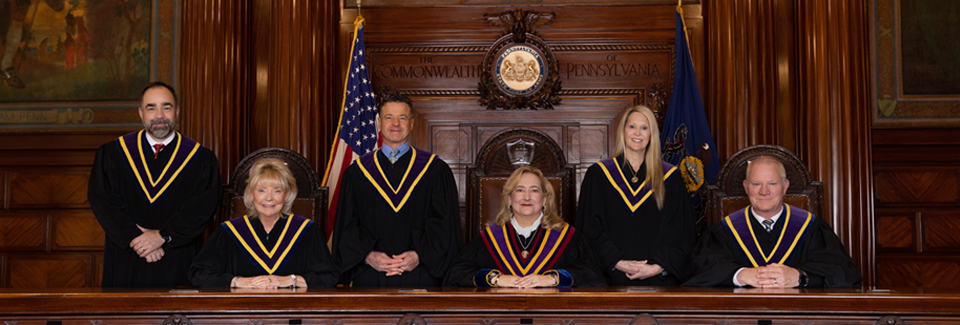Photo: News_Supreme_Court_1: Pennsylvania Supreme Court via pacourts.us
In the aftermath of the Supreme Court of the United States (SCOTUS) overruling in June 2022 that overturned Roe v. Wade and Planned Parenthood v. Casey decisions, many state legislatures and courts have deliberated and drafted new legislation in response to the rulings. As for Pennsylvania, abortion remains legal through the first 23 weeks of pregnancy.
On Monday, Jan. 29, the state Supreme Court deliberated on a case dismissed by a lower court regarding the constitutionality of abortion procedures being paid with state Medicaid funds. Their decision declared that the 1985 decision in regard to the 1982 law failed to adequately protect citizens against discrimination in their 219 page ruling. Currently, Pennsylvania’s Medicaid plans do not cover the cost of an abortion with exceptions of rape, incest or cases of life endangerment from a pregnancy, according to Pa.gov.
In their majority opinion of 3–2 , Justice Christine Donohue wrote that the court’s decision in 1985 overlooked the fact that women who carry their pregnancies to term receive full coverage of their expenses under Medicaid but that women who get or need an abortion receive no coverage for the care that they need. Justices David Wecht and Kevin Dougherty voted in favor of this segment of the opinion, noting that it, at the bare minimum, protects citizens of their federal constitutional rights, but neglects to acknowledge the other ways in which they may be discriminated against — in this case their class.
According to Marc Levy, who covers Pennsylvania politics for AP News, the lawsuit that allowed for the court to rule this new motion was filed by Planned Parenthood and other abortion-related clinics in 2019. The lawsuit argued that the 1982 law discriminated against lower class women and women of color in particular.
“Sometimes they’re [people who are pregnant] waiting for their tax return before they can cover the cost of abortion,” Lisa Perriera said in an interview with The Inquirer. Perriera is the chief medical director of The Women’s Centers, with clinics in Philadelphia and Delaware County.
Justice Donohue also wrote in another segment of the opinion that, “…the Pennsylvania Constitution secures the fundamental right to reproductive autonomy, which includes a right to decide whether to have an abortion or to carry a pregnancy to term.” This part of the opinion was only joined by Justice Wecht, according to both the Inquirer and AP News.
Signe Espinoza, executive director of Planned Parenthood of Pennsylvania’s policy arm, said in a statement included in Levy’s article that, “Today’s ruling is the first step toward ending discriminatory access to care, and we remain committed to removing every barrier to abortion.”
While the decision on Jan. 29 doesn’t enshrine the right to abortion within Pennsylvania, the decision could be a strong foundation for future cases and laws in the state. As outlined by The Inquirer, 19 of the 22 abortion providers in Pennsylvania are east of Harrisburg, leaving the nearly 862,000 women and girls, not including non-binary persons, west of Harrisburg with three clinics to choose from.
Rep. Bryan Cutler (R), the state House’s Minority leader, said in response to the ruling that the court is “seeking to overstep its authority and change well-settled law,” and that it was “another activist decision.” This ruling and following opinions from state republicans occured after lawmakers attempted to amend the state’s constitution to outright ban abortion. However, plans to do so were abandoned after the 2022 midterms when Democrats took control of the House.
Gaven Mitchell is a third-year History major with a minor in Journalism. GM1001024@wcupa.edu

